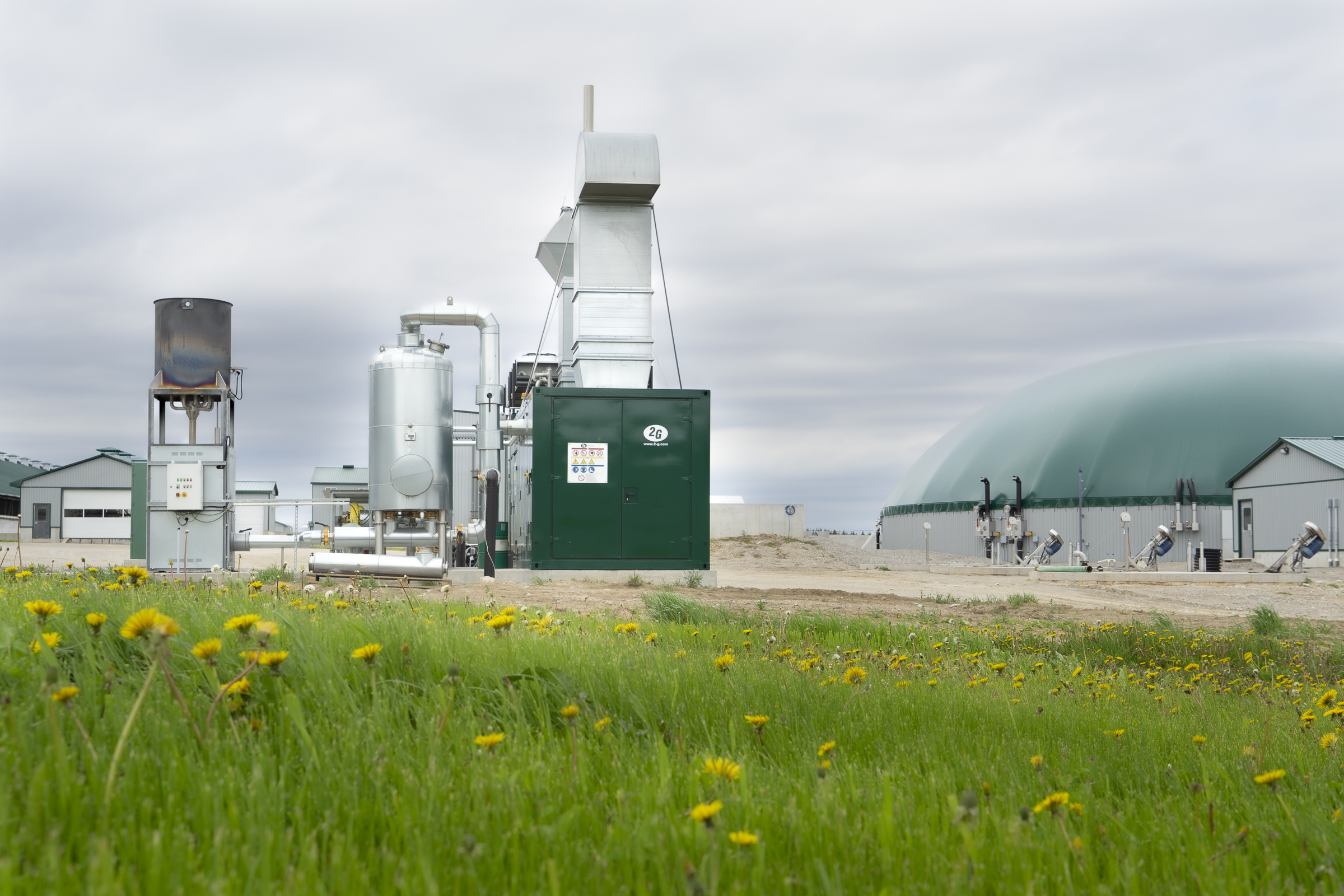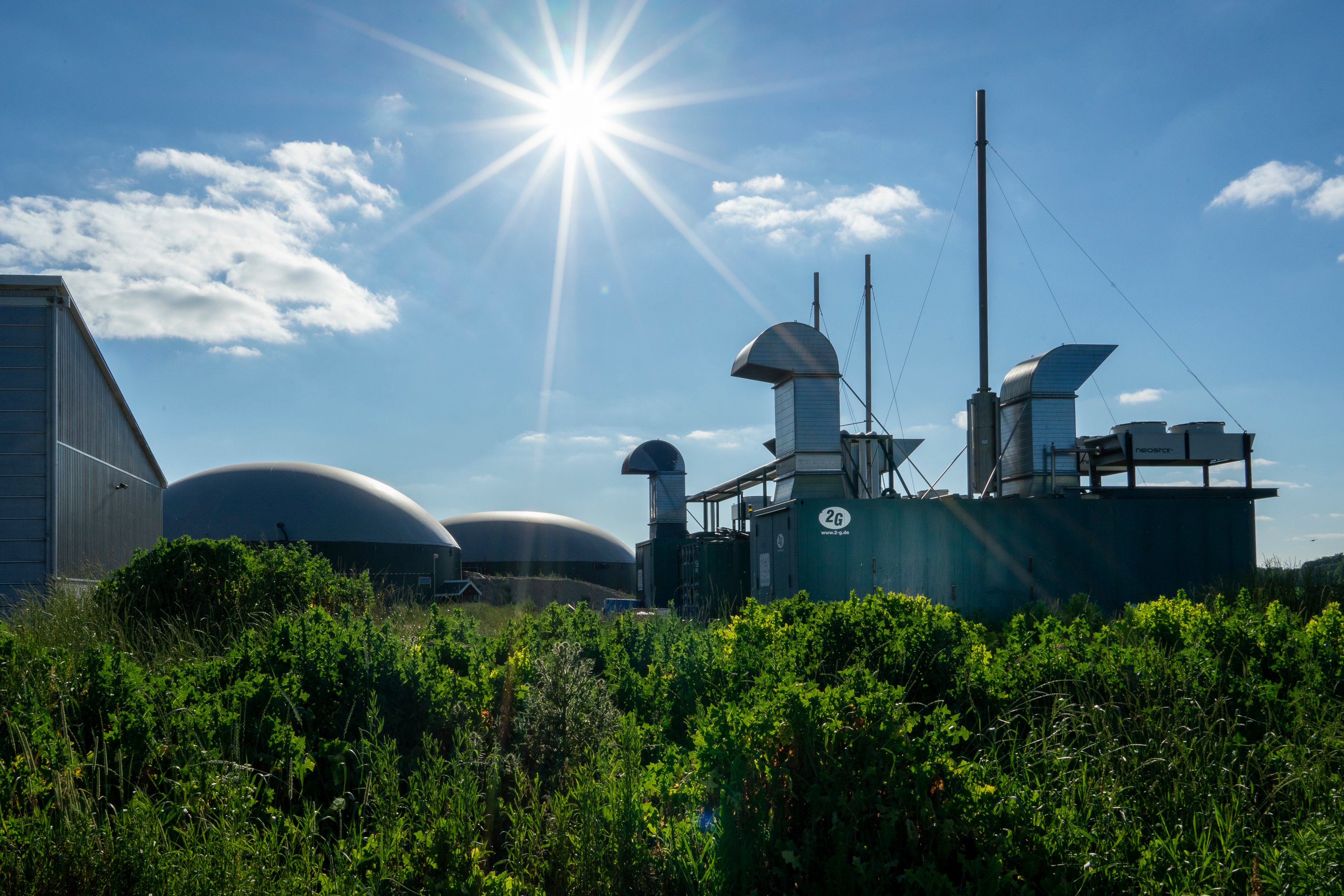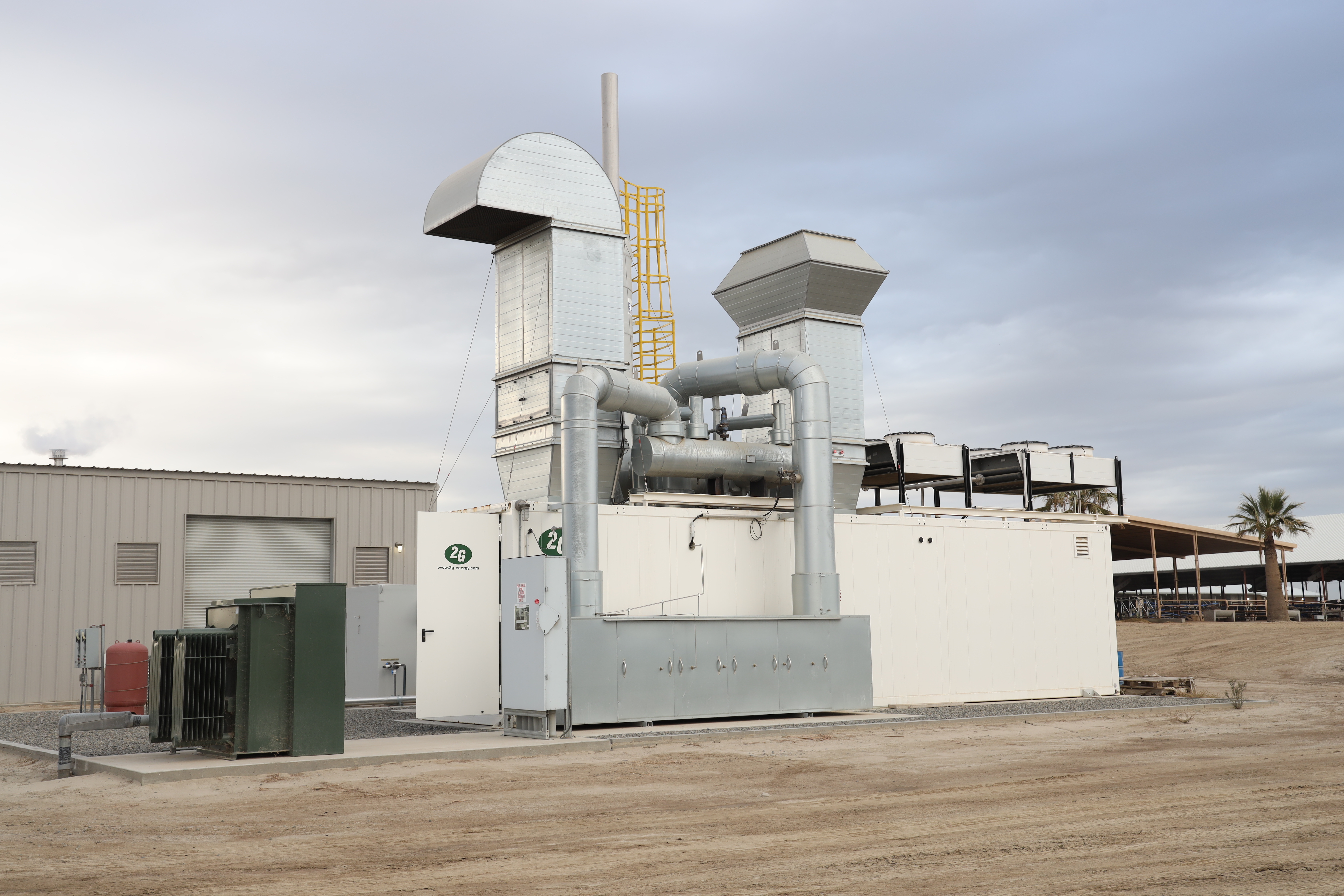- Home
- Applications
- Agriculture
Agriculture
- Agriculture
- Airports
- Breweries
- EV Charging & Infrastructure
- Food Industry
- Greenhouses
- Grocery Stores
- Hospitals and Care Facilities
- Landfills
- Industry & Manufacturing
- Pharmaceutical Facilities
- Hotels & Resorts
- Universities
- Wastewater Treatment Plants
- CHP for Microgrids
- Renewable Natural Gas Facilities
Agriculture is a cornerstone of the economy, but it also faces unique challenges: rising energy costs, the demand for sustainable practices, and the need for reliable power in rural locations. Combined Heat and Power (CHP) systems from 2G offer a transformative solution, delivering efficiency, cost savings, and environmental benefits tailored to the agricultural sector.
Why CHP for Agriculture?
CHP, also known as cogeneration, simultaneously produces electricity and useful heat from a single energy source. For agricultural operations, this dual-purpose capability can translate into:
-
Reduced Energy Costs: With efficiency rates of up to 90%, CHP systems can cut energy expenses by utilizing energy resources more effectively.
-
Energy Reliability: CHP systems provide dependable power and thermal energy, essential for farms and facilities located in remote or off-grid areas.
-
Sustainability: Using renewable fuels like biogas from agricultural waste, CHP systems help farms reduce greenhouse gas emissions and contribute to a circular economy.
Dairy & Livestock Operations:
- Generate power and heat using biogas from anaerobic digesters that process manure.
- Utilize the thermal energy for heating barns, water, and other facilities.
Greenhouses:
- Supply electricity for lighting and ventilation.
- Use the heat to maintain optimal growing conditions.
- Capture CO2 from CHP exhaust to enhance plant growth.
Processing Facilities:
- Provide power for machinery and operations.
- Use the thermal energy for pasteurization, drying, or refrigeration needs.
Crop Farms:
- Power irrigation systems and processing equipment.
- Repurpose agricultural residues to produce biogas as a renewable fuel source.
Benefits of 2G CHP Systems
-
Customizable Solutions: Our systems can be designed to meet agricultural operations' specific energy and heating needs.
-
Scalability: From small farms to extensive processing facilities, 2G offers scalable solutions.
-
Fuel Flexibility: Operate on natural gas, propane, or biogas—giving you control over your energy choices.
-
Proven Reliability: With decades of experience and installations worldwide, 2G CHP systems are built to last and perform.
Case Studies

Stanton Farms - London, Ontario, Canada
From the way they cool the milk using a combination of earth energy and unique heat-exchange technology, to converting on-farm organic waste to renewable energy to power-up the neighboring community, Stanton Farms is always looking to close-the-loop in every aspect their operation. Family owned and operated by Laurie Stanton and his wife Sandy, along with their children Jeff, Jim, Greg and Amy, Stanton Farms is the largest of six agricultural biogas facilities in Ontario. Stanton Farms has 2000 dairy cattle including those used for dairy production and a genetics and breeding operation. Each cow generates 4 kW/day of renewable energy from the manure they produce.

Athlone Farm - Tavistock, Ontario, Canada
Athlone farm is converting methane from cow manure and bio waste to electrical and thermal energy. This 600-acre dairy and crop farm had a biogas system constructed that can power at least 500 homes. By using methane produced from their farm manure and imported organic waste, the system reduces atmostpheric methane, creates a better quality of crop nutrient and supplies clean bedding for the farm's dairy animals.

RuAnne Dairy Farm - San Joaquin Valley, CA
In the heart of California's San Joaquin Valley, you'll find RuAnn and Maddox Dairy Farms, a family-owned and operated establishment. This customer harnesses this heat directly to warm the digestor, creating biogas, which, in turn, powers the engine. The electricity generated in this eco-friendly process is fed back into the grid for local utility consumption. A unique factor of the project is that it is integrated with a solar field nearby to create a full-scale microgrid with the CHP as the backbone. By producing green energy, the customer qualifies for state and federal tax incentives, allowing them to maintain substantially lower total operating costs.


